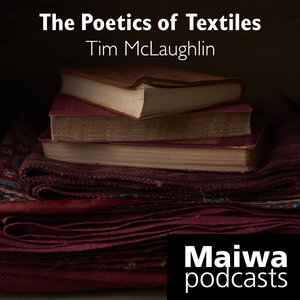On Thursday June 12th Charllotte Kwon, owner of Maiwa Handprints and founder of the Maiwa Foundation, received an honorary doctorate from the University of the Fraser Valley for her work empowering artisans from developing nations and battling poverty by providing a market for their traditional crafts.
It was a proud moment for us all.
It was a beautiful day in June. The auditorium was filled with the friends and family of all the graduating students. As part of the convocation ceremony Charllotte gave a short address to the audience. We are pleased to reprint it here.
The University of the Fraser Valley has also posted a feature on those receiving honourary degrees. Charllotte's may be found here: http://blogs.ufv.ca/blog/2014/06/colourful-commitment-craft-leads-ufv-honorary-degree-charllotte-kwon/
It was a proud moment for us all.
 |
| UFV Chancellor Brian Minter and President Mark Evered present Charllotte with her hood and honourary degree, Doctor of Letters. |
I’d like to express my gratitude for this honour. I am moved
and humbled by the recognition.
When I was told that I was to be awarded an honourary degree
from the University of the Fraser Valley I was very excited. But I was more
joyful for the recognition that this award confers on what I think is most
important: to elevate the status of craft and artisans. That is my passion and the idea that motivates all that I do.
When I thought about how to address an auditorium of
graduates, I thought: each person is like a length of cloth.
For many of the artisans I work with, cloth is believed to
be a living thing. Something invested with potential. As a cloth ages, it records a narrative. Like a person, its
best qualities become more pronounced with time, and like a person, it can be
stained or tainted. Like a life it can unravel, or be torn apart.
But it can also be mended, cleansed, renewed, embroidered,
patched, and ultimately coveted.
The ultimate prestige textiles, the ones that make
collectors weep, are not the ones that display a machine-like perfection, instead
they are the ones that exhibit the most human of qualities. They are the ones
that come from a particular tradition or culture, and yet speak in an
individual voice. I work mostly in India. There, uncut cloth (fabric taken
from the loom and not cut or tailored) is considered holy.
Your life is a cloth that you yourself are weaving.
And what will make you competent weavers is your ability to
learn. If you are graduating here today, you have already spent years in an
environment where everyone is learning. I want to emphasize just how rare that
culture is. The ultimate goal of education is simple: to encourage your
curiosity to the point where it becomes self-sustaining. By teaching you how to
learn, an education provides a mechanism through which your curiosity is never
stifled, instead it becomes the passion that guides your life.
In my own life, I follow two passions: a passion for
business and a passion for textiles. My love of textiles gives a purpose and
focus to my business. When I encounter highly-skilled artisans who are loosing
a market for their craft, I put the business to work to create new markets for
traditions that are often hundreds of years old. When I have been discouraged or faced terrible challenges,
the beauty of the textiles, and the integrity of the makers, keeps me going.
A successful business is, for me, one that leads you to a
new place of learning each day. Although I am proud that my books are balanced
and my staff have a medical plan, ultimately I am driven as an explorer is
driven, by an insatiable curiosity to discover and learn.
I am happy that my business is successful. But my fundamental
business decisions are made with a goal that is never mentioned in business
school. Everything I do is decided with a simple set of questions: will this
elevate skills? Will this improve the lives of artisans, the people who are
making the things that I am selling? Will this make the world a better place?
For example, current business theory is that you should
carry minimum inventory. Much to by accountant’s dismay, I don’t do that. I will
order enough handwoven, naturally dyed, blockprinted cloth to keep a family of
artisans in business. If that family business thrives, an entire network of
other people is also supported — from the farmers of natural dye plants, to
growers of organic cotton.
Work should generate not only income — it should generate
meaning.
It is a rare opportunity to be able to address a class of
university graduates. The world needs people like you. It needs individuals who
don’t see education as vocational training, to be set aside once you have
landed your first job. The world needs individuals who don’t see work as something
you do only to pay for your future retirement.
If I could tell you one thing, I would say, never dull your
passion. Never let others diminish it. Keep your vision.
Weave your passion and your work together with a lifetime of
learning into a coveted cloth.
Thank you.
Congratulations to everyone who graduated and a heartfelt thanks to all those who made this day possible.






















